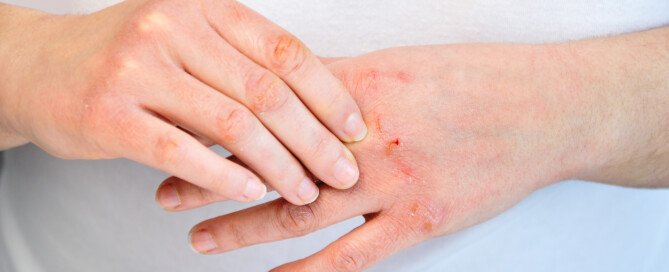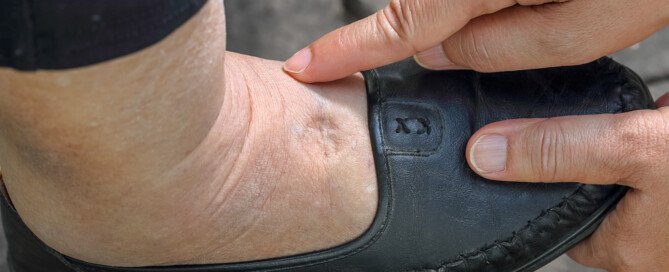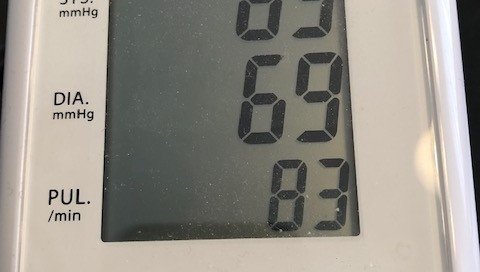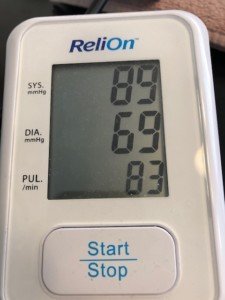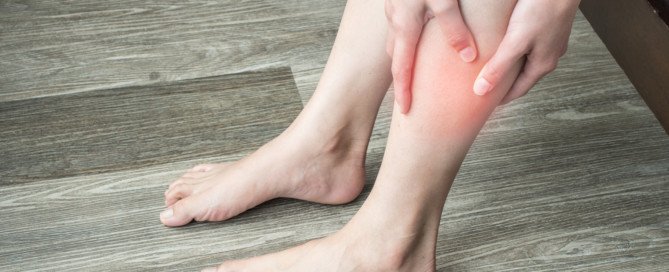Does Your Heart Race and Thump? Obesity May Be the Cause

Being obese, no matter how body positive you are, can cause a racing heart or one that thumps and has an irregular rhythm.
The excess fat in one’s body can lead to an arrhythmia, specifically atrial fibrillation.
This heart rhythm disorder raises the risk of blood clots in the heart and brain — which can cause a heart attack or stroke, respectively.
You may “feel” healthy and think you’re healthy because your blood pressure and blood sugar are normal, but atrial fibrillation will NOT affect these numbers.
“Obesity is an independent risk factor for atrial fibrillation, even if the patient is not a diabetic or has elevated blood pressure,” says Susan L. Besser, MD, with Mercy Medical Center, Baltimore; Diplomate, American Board of Obesity Medicine and board certified by the American Board of Family Medicine.
Dr. Besser explains, “Here’s why the risk: Obese people tend to have an enlarged heart because it requires a bit more effort for the heart to send blood around a larger body (even with normal blood pressure).
“So when the heart enlarges, it may not function quite as well — especially the electrical system of the heart that causes your heart to ‘remember’ to beat.
“If there is a short-circuit in that electrical system, you may end up with an abnormal heart rhythm such as atrial fibrillation.”
This disorder is characterized by a suddenly racing, unsteady heartbeat.
The patient won’t always feel it, but when they do, it can feel like a thumping or runaway beat.
Jumping Heartbeat Caused by Obesity
Penn State researchers followed a large group of study participants for eight years:
• Those who were obese
• Those who were not
Dr. Andrew Foy says in the report that if you’re fat and have been diagnosed with atrial fibrillation, weight loss may help treat this abnormal rhythm.

“And if you have obesity, and lose weight through diet, exercise or even surgery, that will help reduce your risk of developing chronic conditions like atrial fibrillation,” adds Dr. Foy in the paper.
If you’re obese and have been experiencing an unexplained racing pulse or the sensation of a thumping heartbeat, this does not automatically mean that you have atrial fibrillation.
However, if you have a lot of fat in your body, and you’ve been feeling strange things going on in your chest, then it’s time to see a cardiologist.
“I’m Not Fat; I HAVE Fat.”
Catchy slogans that detract from the dangers of obesity will not protect the heart from dysfunction caused by all the fat.
Dr. Foy’s study is nothing to sneeze at. It involved tracking 67,278 people (half with obesity), and the average age was 43.8. About 77 percent were women.
• 1.8 percent without obesity developed A-fib.
• 2.7 percent WITH obesity developed A-fib.
Dr. Foy’s team also found that having a lot of fat in the body is almost as significant a risk factor for A-fib as is high blood pressure or diabetes.
Posing in a bikini for selfies to show your Instagram followers will not lower your risk of a disordered heart rhythm.
“When the heart is strained, it can lead to changes in the atrium — and it’s here where we believe structural abnormalities can precipitate atrial fibrillation,” says Foy in the paper, which appears in the April 2018 American Journal of Cardiology.
 Dr. Besser provides comprehensive family care, treating common and acute primary conditions like diabetes and hypertension. Her ongoing approach allows her the opportunity to provide accurate and critical diagnoses of more complex conditions and disorders.
Dr. Besser provides comprehensive family care, treating common and acute primary conditions like diabetes and hypertension. Her ongoing approach allows her the opportunity to provide accurate and critical diagnoses of more complex conditions and disorders.
 Lorra Garrick has been covering medical, fitness and cybersecurity topics for many years, having written thousands of articles for print magazines and websites, including as a ghostwriter. She’s also a former ACE-certified personal trainer.
Lorra Garrick has been covering medical, fitness and cybersecurity topics for many years, having written thousands of articles for print magazines and websites, including as a ghostwriter. She’s also a former ACE-certified personal trainer.
.
Top image: Freepik
Source: sciencedaily.com/releases/2018/04/180418141336.htm
Exercise vs. Vitamin D for Fall Prevention in the Elderly
Don’t be so quick yet to rely on only vitamin D to prevent falls in your elderly body; it’s crucial you get an exercise program started! (more…)
Chest Pain After Exercising? What Should You Do?

Chest pain after exercise, even though you felt fine during the workout, is cause for concern because it may be a heart problem. (more…)
What Is All that Crud Behind Your Lower Ear, Cancer ?

Discovering crud or crusty gunk behind your ear can be an unnerving experience, making you wonder if it’s skin cancer. (more…)
Can Skin Cancer Cause Skin to Peel?

The good news is that the melanoma type of skin cancer does not cause peeling skin; the bad news is that other forms of cancer can cause peeling.
This includes a type of lymphoma. (more…)
5 Questions Never to Ask Someone with a Huge Pimple on Their Face

It’s unbelievable the questions that get asked of people who have a giant pimple on their face.
Now of course, young kids get a pass on this, as they have no so-called filter and are only being curious.
Young children don’t deserve to be penalized for asking blunt questions about someone’s acne.
The adult with acne can use the child’s curiosity as a learning experience for him or her — and matter of factly explain to the young one what’s going on.
But the rudest or most ignorant sounding questions come from adults – who are supposed to have a filter and much more common sense than what children have.
Sometimes, these questions are asked by strangers. That makes it even worse.
Sure, you — the recipient with acne — can fire back and ask the stranger why they’re missing hair on the top of their head or why their belly is hanging over their belt buckle.
But this article is for the adults who brazenly ask the rude questions or make the dopey comments.
If you’re standing in an elevator with one other person who has a huge pimple on their face, what could possibly compel you to ask this total stranger anything about the pimple?
Can anything be MORE unexciting and mundane to chat about? (Yes, we know, Kim Kardashian or Meghan Markle…).
If you encounter someone with a single giant pimple on their face, don’t say anything, and assume that they are highly self-conscious about it or are just plain fed up with the questions and comments.
Below are the worst offenders:
Does it hurt?
Did a bug bite you?
What’s on your face?
Did you know you have something on your face right there?
Have you ever used anything to get rid of it?
 Lorra Garrick has been covering medical, fitness and cybersecurity topics for many years, having written thousands of articles for print magazines and websites, including as a ghostwriter. She’s also a former ACE-certified personal trainer.
Lorra Garrick has been covering medical, fitness and cybersecurity topics for many years, having written thousands of articles for print magazines and websites, including as a ghostwriter. She’s also a former ACE-certified personal trainer.
Is Sleeping with Regular Socks Bad for Edema in the Legs ?
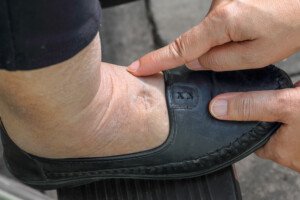
If you have chronic lower leg edema from a medical condition, you probably already know how easy it is for socks to leave an impression in this area – and the impression sticks around for quite a while.
In fact, when impressions linger in the edematous area, this is called pitting edema.
Wearing Socks to Bed Despite Having Edema in the Lower Legs
“The elastic in regular socks isn’t enough to cause a serious problem, but if you already have edema, it can certainly ‘leave a mark’ (temporarily),” says Susan L. Besser, MD, with Mercy Medical Center, Baltimore, and Diplomate American Board of Obesity Medicine and board certified by the American Board of Family Medicine.
The medical condition that’s causing your edema will not be made worse by sleeping with regular socks.
Medical conditions that cause chronic lower extremity edema include congestive heart failure, emphysema, kidney disease, liver disease, lymphedema after cancer treatment and venous insufficiency.
If regular socks are the most comfortable way for you to sleep, then go ahead and wear them.
For many people, wearing clean socks to bed keeps the feet cozy and warm, and/or prevents them from feeling grimy, sticky and sweaty.
And partners will appreciate not feeling cold bare feet in the middle of the night — and may welcome those warm socks.
What’s more important is the adherence to your medication regimen, keeping hydrated, being conscious of your sodium intake and making sure that you do other things that your doctor wants you to do, depending on your medical condition.
This includes limiting junk food and eating more fresh vegetables and fruits, losing excess body weight and getting regular exercise.
At bedtime, go ahead and wear the socks to keep comfy while you sleep.
To help manage your edema, you should keep your legs elevated overnight as much as you comfortably can.
 Dr. Besser provides comprehensive family care, treating common and acute primary conditions like diabetes and hypertension. Her ongoing approach allows her the opportunity to provide accurate and critical diagnoses of more complex conditions and disorders.
Dr. Besser provides comprehensive family care, treating common and acute primary conditions like diabetes and hypertension. Her ongoing approach allows her the opportunity to provide accurate and critical diagnoses of more complex conditions and disorders.
 Lorra Garrick has been covering medical, fitness and cybersecurity topics for many years, having written thousands of articles for print magazines and websites, including as a ghostwriter. She’s also a former ACE-certified personal trainer.
Lorra Garrick has been covering medical, fitness and cybersecurity topics for many years, having written thousands of articles for print magazines and websites, including as a ghostwriter. She’s also a former ACE-certified personal trainer.
.
Top image: Shutterstock/Toa55
How to Take Blood Pressure with an Automated Machine
The automated blood pressure machine is so much easier to use than the device that requires you to use a pump.
An automated blood pressure device can indeed be accurate, but there are several things you need to know before you rely on its reading. (more…)
Feeling of Bruised Area on Leg but No Bruise: Should You Worry?
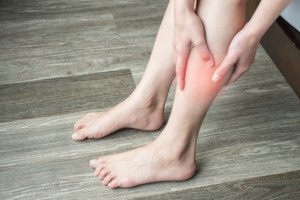
It feels like there’s a bruise on your leg, but when you look there, you see nothing unusual. Is this a cause for concern?
“That depends,” says Susan L. Besser, MD, with Mercy Medical Center, Baltimore, and Diplomate American Board of Obesity Medicine and board certified by the American Board of Family Medicine.
Dr. Besser explains, “If you remember injuring your leg recently, even if there is no visible bruise — it’s nothing to worry about.
“If the sore area has been there for several weeks, without improvement and you don’t remember an injury — you should check it out with your doctor.”
Not remembering an injury doesn’t mean there wasn’t one.
It’s quite easy to forget that you had bumped your leg into something recently.
Perhaps you hit your leg against a bedpost in the middle of the night on the way to the toilet.
Perhaps the sore bruised area is from something you did at the gym.
For example, gliding a barbell up and down the lower legs during the deadlift can cause visible bruising – even if your legs are covered.
If you feel bruised spots along your shins but don’t see anything unusual – and you’re an avid deadlifter – this very well could be caused by the barbell.
Do not keep pressing on the area to see if the sore feeling is still there.
Frequent pressing will make any area sore and will make it difficult to tell if the situation is improving.
Other Considerations
A bruised feeling in the leg without visible discoloration can result from muscle strain, tendon irritation or delayed onset muscle soreness (the infamous “DOMS”) after a hard workout.
Nerve compression, poor circulation or varicose veins may also produce tenderness.
Again, if this situation persists for two or three weeks, make an appointment with your doctor.
 Dr. Besser provides comprehensive family care, treating common and acute primary conditions like diabetes and hypertension. Her ongoing approach allows her the opportunity to provide accurate and critical diagnoses of more complex conditions and disorders.
Dr. Besser provides comprehensive family care, treating common and acute primary conditions like diabetes and hypertension. Her ongoing approach allows her the opportunity to provide accurate and critical diagnoses of more complex conditions and disorders.
 Lorra Garrick has been covering medical, fitness and cybersecurity topics for many years, having written thousands of articles for print magazines and websites, including as a ghostwriter. She’s also a former ACE-certified personal trainer.
Lorra Garrick has been covering medical, fitness and cybersecurity topics for many years, having written thousands of articles for print magazines and websites, including as a ghostwriter. She’s also a former ACE-certified personal trainer.
.
Top image: Shutterstock/Boyloso
Cause of Eyelid Twitch After Putting in Eye Drops & Prevention






